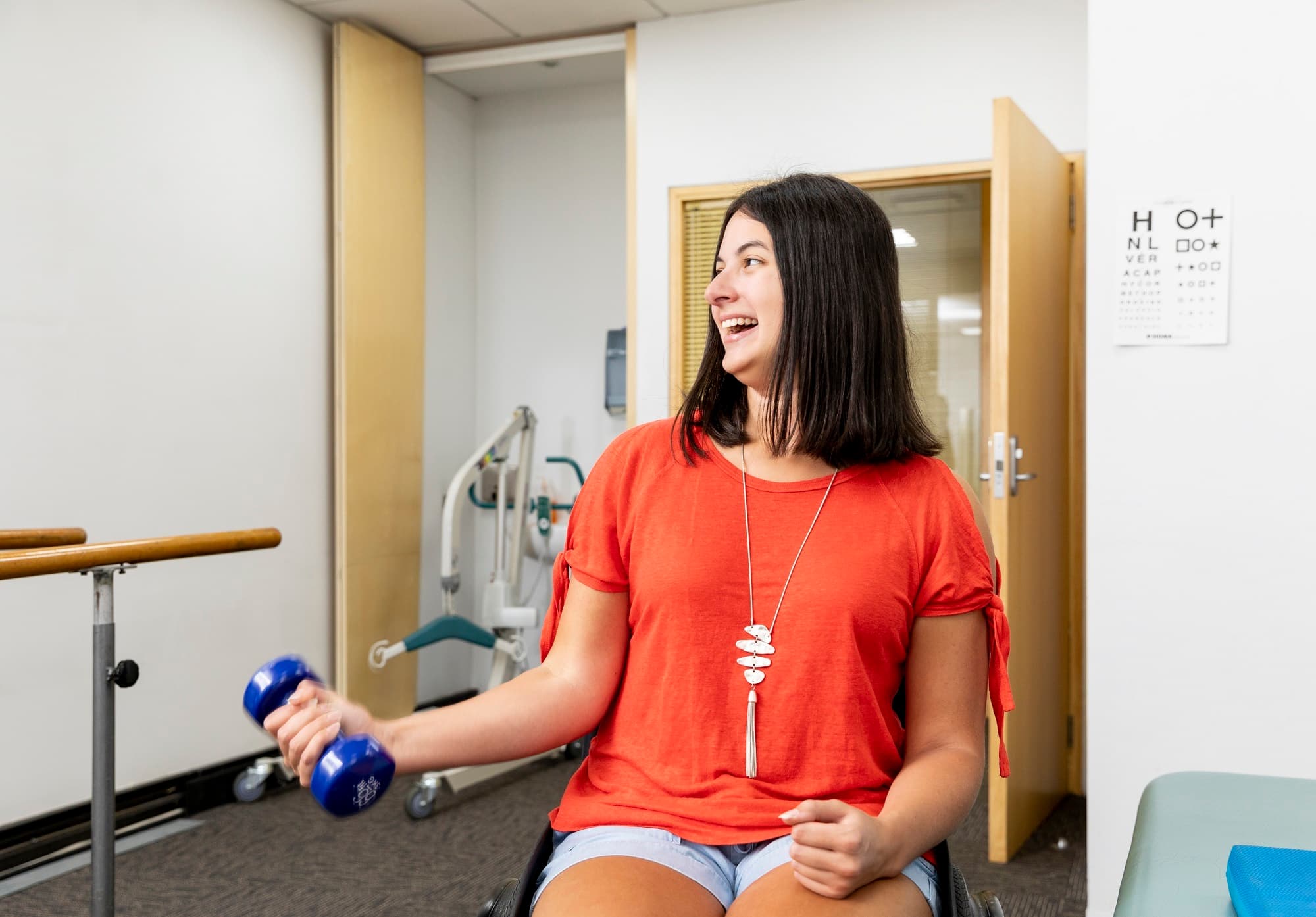Muscle weakness in MS can make you feel like you don’t have the energy or strength to move certain parts of your body. Understanding the difference between primary and secondary muscle weakness can help you and your healthcare team find the right management strategies.
A health professional can work with you to strengthen your muscles and provide tailored solutions for any MS muscle fatigue or other symptoms you may experience.
How does MS lead to muscle weakness?
How can muscle weakness affect people with MS?
You may experience MS muscle weakness anywhere in the body, including the:
- Hips
- Knees
- Ankles
- Upper body
- Arms
Muscle weakness can make it harder to move, stay active, maintain good balance, and carry out day-to-day tasks.
Whether your muscle weakness is a primary or secondary result of MS, a physiotherapist can work with you to identify any muscle weakness and design a training program to rebuild strength.
How muscle strength is measured
Health professionals often measure muscle strength using the Manual Muscle Testing Scale – a 6-point scale ranging from 0 (no muscle contraction) to 5 (normal muscle contraction).
This scale helps determine the extent of muscle weakness and track progress as you build strength through therapy and exercise.

Ways to manage or improve muscle weakness
The first step to managing MS muscle weakness is identifying the root cause Your GP or MS nurse can help determine whether it's primary or secondary weakness and refer you to appropriate specialists.
Allied health specialists – such as physiotherapists, occupational therapists or physical therapists – can help you strengthen your muscles and manage day-to-day life.
If it’s primary weakness
The best approach is to maintain the muscles that aren’t getting enough nerve signals by engaging them and strengthening the surrounding muscles.
If it's secondary muscle weakness
For secondary weakness, your therapist will usually create a tailored weight-training program that targets and strengthens your weakened muscles.
Regular exercise
Regular exercise can help maintain or strengthen muscles, improve posture and flexibility, increase endurance and reduce levels of fatigue. Regular exercise is also linked to maintaining improved mental health.
Assistive devices
Assistive devices such as walkers, canes or braces can help you get around more safely and independently. An occupational therapist can give you advice on what assistive devices or technology could help you.
Medication and therapies
Your doctor may prescribe medication or therapies to address primary muscle weakness, these may include steroids, muscle relaxants, glatiramer acetate (Copaxone), plasma exchange or interferon-beta therapy.
Plus Allied Health
Our allied health services can help you feel your best, move comfortably and do everyday activities you may be finding challenging. This includes physiotherapy, continence support, occupational therapy and exercise physiology.
Find out more
Learn more about MS
Support and services
We offer a wide range of services and support to help you manage your health and wellbeing – so you can maintain your lifestyle and achieve your goals.

Newly diagnosed
Wondering where to go after receiving an MS diagnosis? Find the information and support you need to live well.

Resource hub
Find everything you need to know about living with MS – from managing symptoms and your emotional health to navigating employment and the NDIS.

Speak to someone who understands

